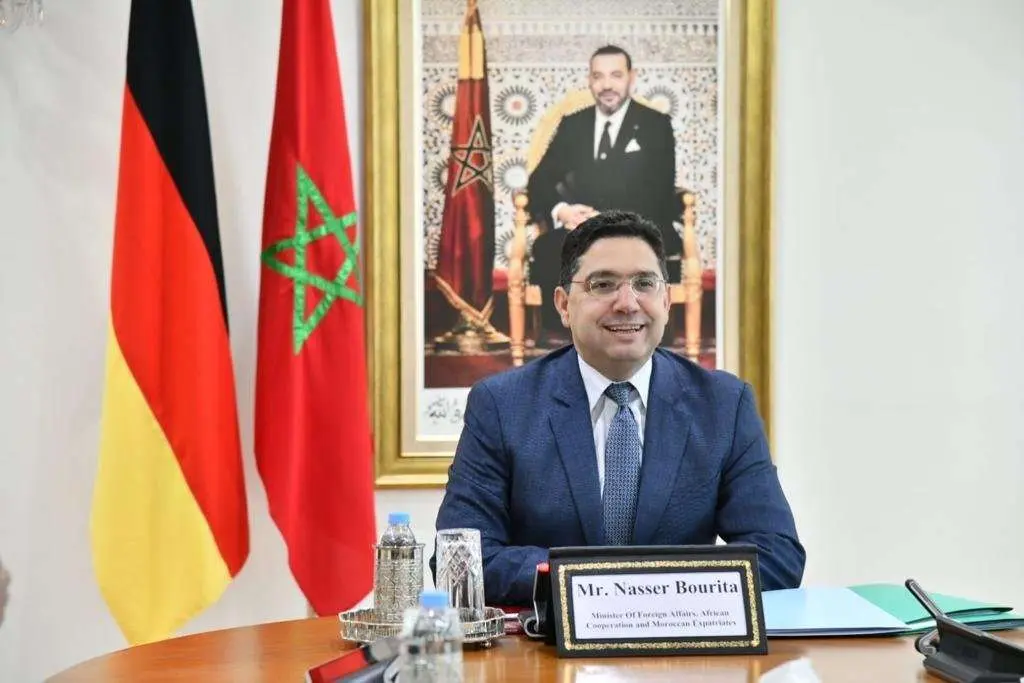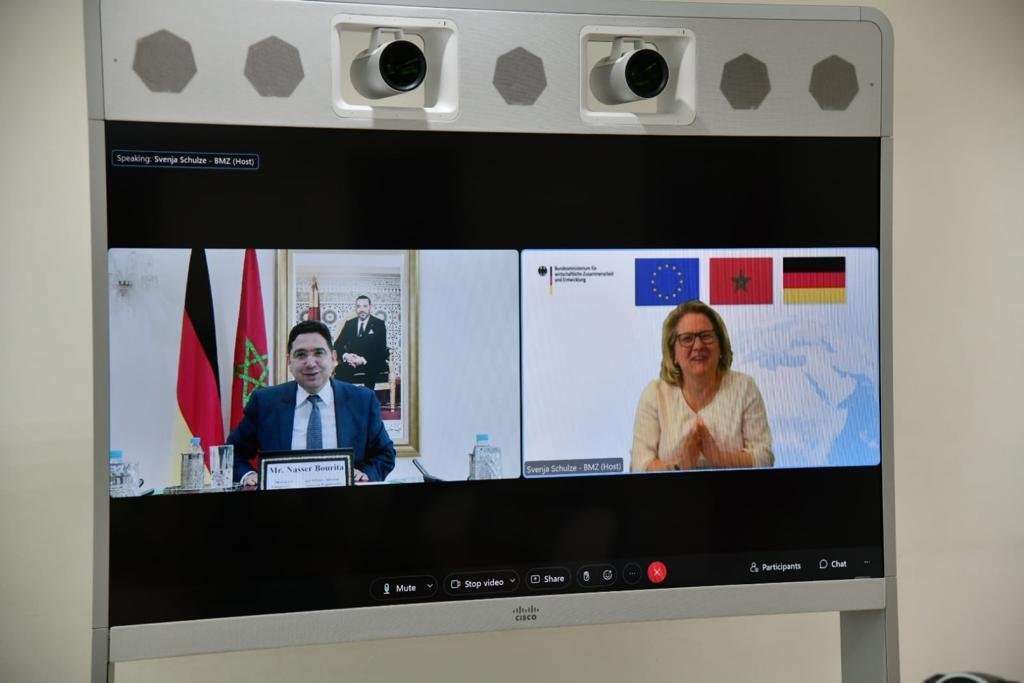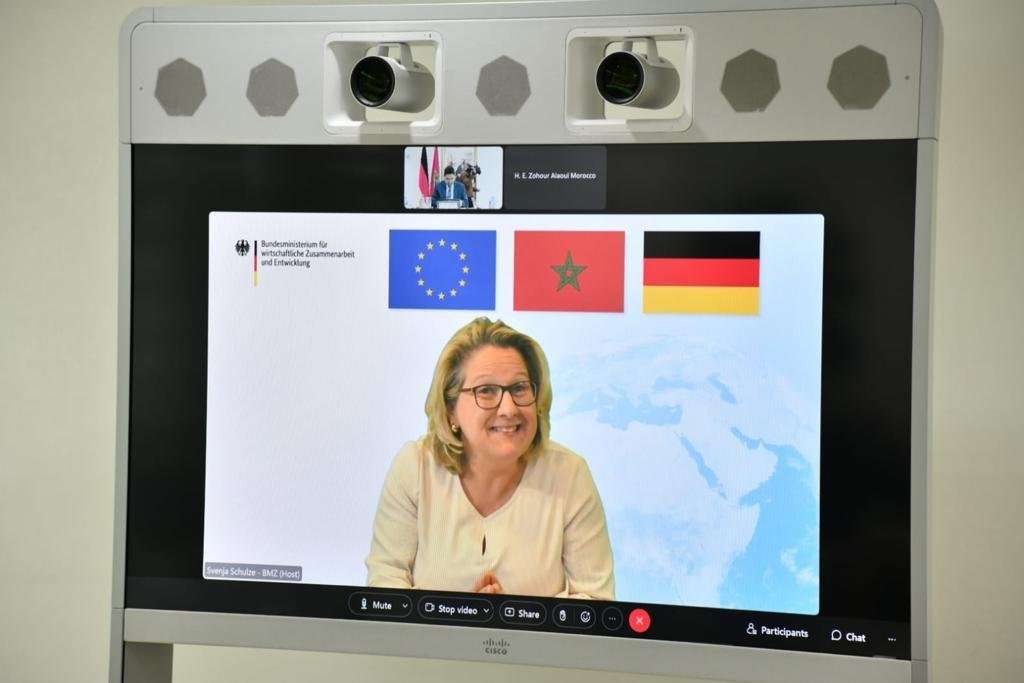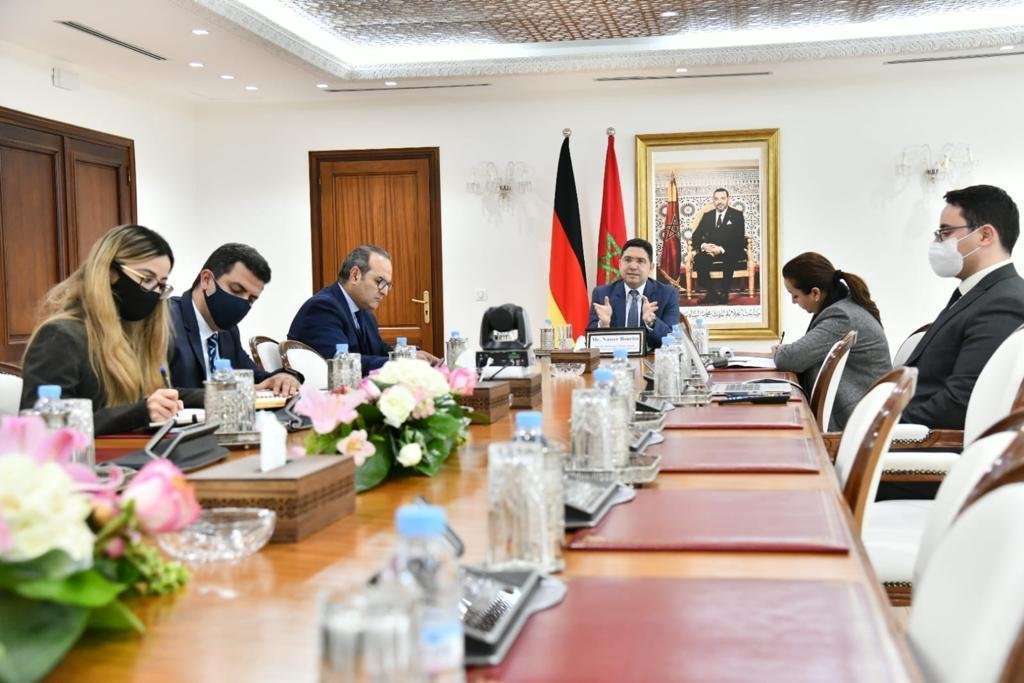Marruecos y Alemania intensifican su relación bilateral

Diplomacy between Morocco and the countries of the European Union continues to advance and strengthen. This time it is Germany that has staged a virtual meeting between the Moroccan Foreign Minister, Nasser Burita, and the German Minister for Economic Cooperation and Development, Svenja Schulze. The two leaders stressed the "great potential" of relations between Morocco and Germany and reaffirmed their desire to continue working to give relations additional momentum.
At a time when diplomatic relations between Berlin and Rabat are at an optimal stage, the meeting of the two ministers confirms the desire of both countries to continue working together in the future. They confirmed their mutual interest in intensifying and sharing bilateral cooperation in order to develop "a spirit of global partnership and mutual respect".

Cooperation between Morocco and Germany is based primarily on economic and sustainable development, including joint work in areas such as sustainable development, climate, renewable energy and water. It is in this sector that Burita and Schulze stressed the great potential that both countries have, as well as their desire to give a favourable impulse after the challenges and demands experienced during the COVID-19 pandemic.
Thus, in this new development cooperation, both Morocco and Germany will seek to take up the proposals put forward by the new Moroccan development model (NMD), a plan that aims to increase the economic capacity and improve the quality of life of Moroccan citizens over a period of 13 years. It is in this context that one of the main projects that both Rabat and Berlin wish to embark on is framed: the promotion and development of green hydrogen.

In doing so, they reaffirmed their shared interest in intensifying work in this sector. They therefore announced that they would use "all instruments and access, involving all actors". They also reiterated that this cooperation contributes to "strengthening the strategic, multidimensional and privileged relationship" between Morocco and Germany.
In the same way, they have informed that during the next few years they will develop a "common vision" where the priorities and opportunities to continue implementing development cooperation in the coming years will be united. The aim of this union is to "deepen dialogue and cooperation" and "contribute to overcoming future regional and global challenges".
Another key factor behind the good cooperation between Germany and Morocco is the latter's support for the autonomy plan presented by Morocco in 2007. For Berlin, the plan represents 'a serious and credible effort and a good basis for reaching an agreement on this regional conflict'.
The latest country to take the same stance as the Germans is Spain. After the Spanish Prime Minister, Pedro Sánchez, pointed out that this resolution was "the most serious, realistic and credible basis" for ending the Western Sahara conflict.

This statement was the end of the diplomatic crisis that Spain and Morocco had been going through for ten months. The return of the Moroccan ambassador, Karima Benyaich, to Madrid was a sign of this after she was recalled for consultations in May.
Now Spain, like Germany, is embarking on a new diplomatic stage marked by mutual understanding and cooperation, thus giving rise to 'solid, lasting and stable' relations, something that represents an important benefit for both kingdoms.








